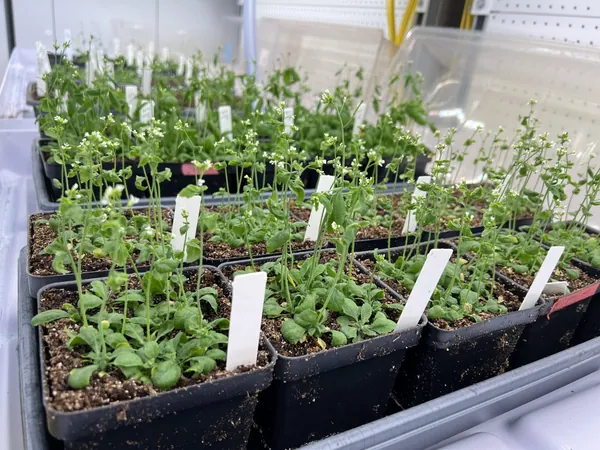
Unraveling the Mystique of RNA: Groundbreaking Discoveries Pave the Way for Disease Treatment and Agricultural Advancements
2024-11-01
Author: Sarah
Researchers at Texas A&M AgriLife have made a significant breakthrough in understanding RNA processes, potentially revolutionizing both plant resilience and human disease treatments. Their study has unveiled an impressive target that influences gene expression—an exploration that could lead to monumental strides in managing neurodegenerative diseases like Alzheimer’s and Parkinson's, alongside various cancer types.
This promising discovery focuses on the regulation of RNA, an essential molecule responsible for transmitting genetic instructions within our cells. When RNA regulation is disrupted, serious health conditions often arise. Conversely, optimizing RNA production can lead to innovative therapeutic breakthroughs and strengthened crop resilience.
Under the direction of Xiuren Zhang, Ph.D., a prominent figure within Texas A&M's College of Agriculture and Life Sciences, the research team uncovered the pivotal role of a protein named Serrate. This protein uniquely connects the dots between RNA modification and microRNA production, functions that were previously considered distinct.
"We discovered that RNA processes do not function independently; rather, they influence one another," said Zhang. "These findings could lead to enhanced gene expression management in crop science and improved health outcomes."
The team, including postdoctoral researcher Songxiao Zhong and collaborators from various esteemed institutions, detailed their findings in the prestigious journal *Nature Cell Biology*. They demonstrated that Serrate plays a crucial part in coordinating RNA modifications, particularly N6-adenosine methylation (commonly referred to as m6A), which represents the most prevalent form of RNA modification.
Why RNA Modifications Matter
RNA is essential in numerous cellular functions, acting not only as a messenger but also as a catalyst and regulator of gene expression. "Think about RNA modifications as punctuation marks in a sentence," Zhang elaborated. "They provide clarity; some modifications highlight critical instructions, while others can pause or terminate RNA functionality."
The research team's investigations uncovered that m6A modifications are vital for crop yields, particularly in rice and corn, influencing how well these plants can resist viral infections. They discerned that Serrate interacts with the molecular machinery required for these modifications, ensuring smooth functioning and efficiency in RNA processing.
The Intriguing Link Between mRNA and microRNA
What sets this discovery apart is its revelation regarding the interconnected roles of mRNA and microRNA. Traditionally, these processes were studied separately. However, the Texas A&M researchers found that Serrate serves as a crucial bridge between the two, thereby regulating RNA's fate within the cell.
MicroRNAs play a key role in protein production regulation, managing the abundance of specific RNAs. This new understanding points to a previously unforeseen regulatory mechanism that has implications for both plant health and human medicine.
A Bright Future for Health and Agriculture
Zhang expressed optimism about the wider implications of their work: "Our insights into m6A regulation could catalyze drug discovery efforts targeting these pathways, potentially providing solutions for diseases where gene regulation fails."
Moreover, the findings could significantly impact agricultural practices, as RNA modifications enhance plant adaptability to environmental challenges like droughts, salinity, and pathogen threats. By manipulating these RNA processes, researchers foresee a future where crop resilience and productivity surpass current limits.
Excitingly, the research team aims to extend their investigations to explore RNA processes in other crops and human cells. "This study marks a critical step towards a more integrated understanding of RNA regulation across species," Zhang concluded. "We are eager to leverage this knowledge to advance human health and agricultural sustainability."
Stay tuned as we unravel more secrets of RNA and its monumental implications for our world!

 Brasil (PT)
Brasil (PT)
 Canada (EN)
Canada (EN)
 Chile (ES)
Chile (ES)
 España (ES)
España (ES)
 France (FR)
France (FR)
 Hong Kong (EN)
Hong Kong (EN)
 Italia (IT)
Italia (IT)
 日本 (JA)
日本 (JA)
 Magyarország (HU)
Magyarország (HU)
 Norge (NO)
Norge (NO)
 Polska (PL)
Polska (PL)
 Schweiz (DE)
Schweiz (DE)
 Singapore (EN)
Singapore (EN)
 Sverige (SV)
Sverige (SV)
 Suomi (FI)
Suomi (FI)
 Türkiye (TR)
Türkiye (TR)